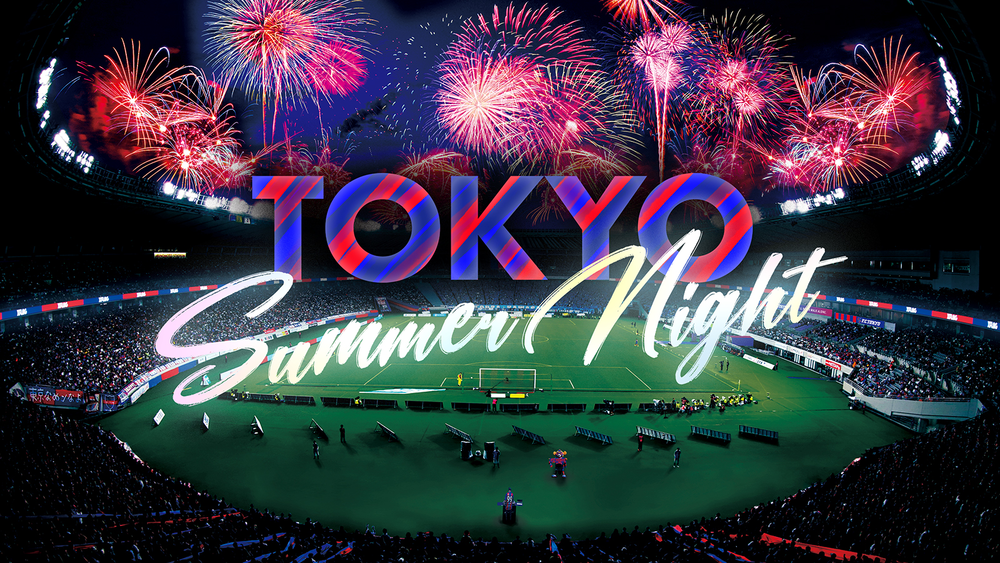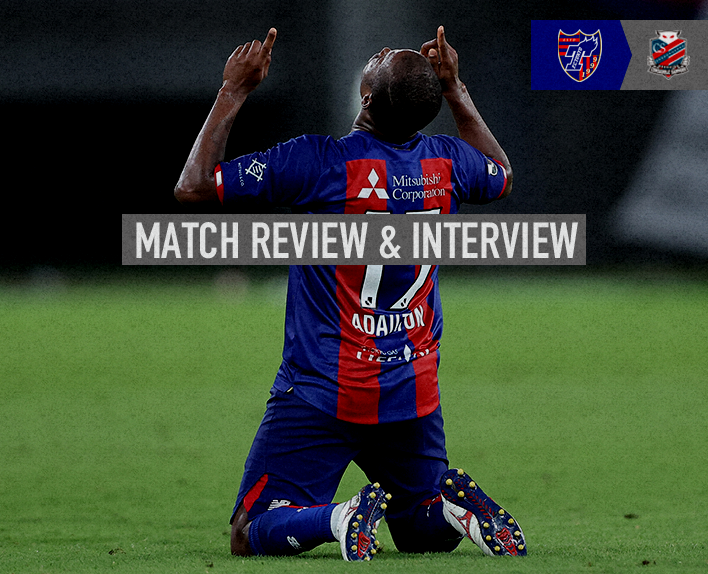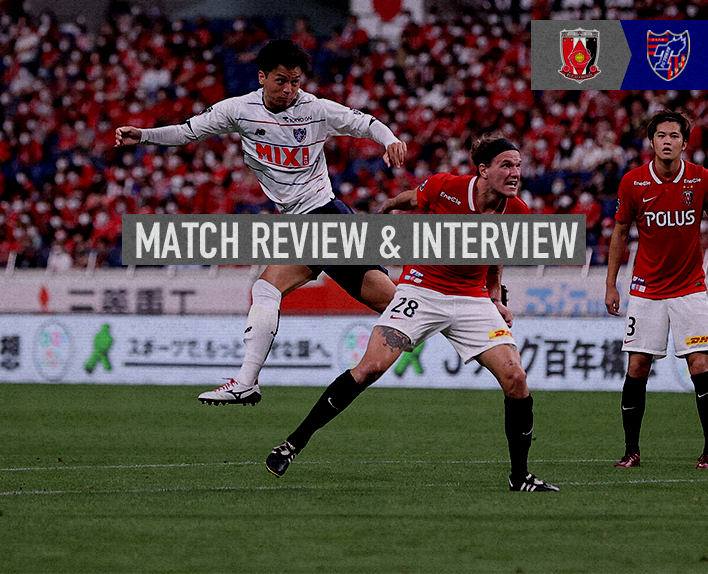<Match Preview>
The third match of the consecutive battles to be fought in 3 days will be against Urawa Reds away. In the previous match, Tokyo played in the "voice" of the fans and supporters for the first time in two and a half seasons, and received a big boost to achieve their first victory in 4 league matches.
Urawa, the opponent, has struggled throughout the first half of the season, with a period of 9 games without a win. However, in the last 5 games, they have improved with 2 wins and 3 draws, and have managed to climb up to 11th place from the relegation zone.
In the previous match against Kyoto Sanga F.C., although we took the lead in the first half, we allowed a quick turnaround in the second half and ended up with a draw after catching up with a goal immediately after. However, as the 17-6 shot count shows, we had a significant advantage over the opponent in terms of finishing and creating decisive scenes near the goal, and it can be said that we were unable to secure a victory while taking control of the attack as Urawa.
In the first half of the season, both teams lacked a decisive edge and ended in a 0-0 draw. While both teams had periods of possession, it seemed that Tokyo struggled to withstand Urawa's strong attacks throughout the 90 minutes. This was Tokyo's third game in a row, just like this one, and the team seemed fatigued. Despite playing in strong sunlight and a temperature of 25.6 degrees Celsius, which is unusual for April, Tokyo managed to hold on for a draw and earn 1 point.
Urawa's manager Ricardo RODRIGUEZ is known for analyzing the opponent's movements and making changes to their attacking and defending styles. Despite struggling with results, in his second year in charge, he has made progress in building a tactical foundation and their attacking style has finally started to lead to victories in the middle of the season. On the other hand, Tokyo has also made rapid progress in implementing their tactics, as seen in their dominant victory over Kashima Antlers, who were at the top of the league in the first half of the season. Of course, there are also moments like their match against Sagan Tosu where one small mistake can lead to a complete collapse, but going through that experience has only made the team stronger.
In the clash between two attack-oriented teams, Tokyo wants to push their style, score goals, and achieve consecutive victories to accelerate the team's evolution once again.
[Albert PUIG ORTONEDA Interview]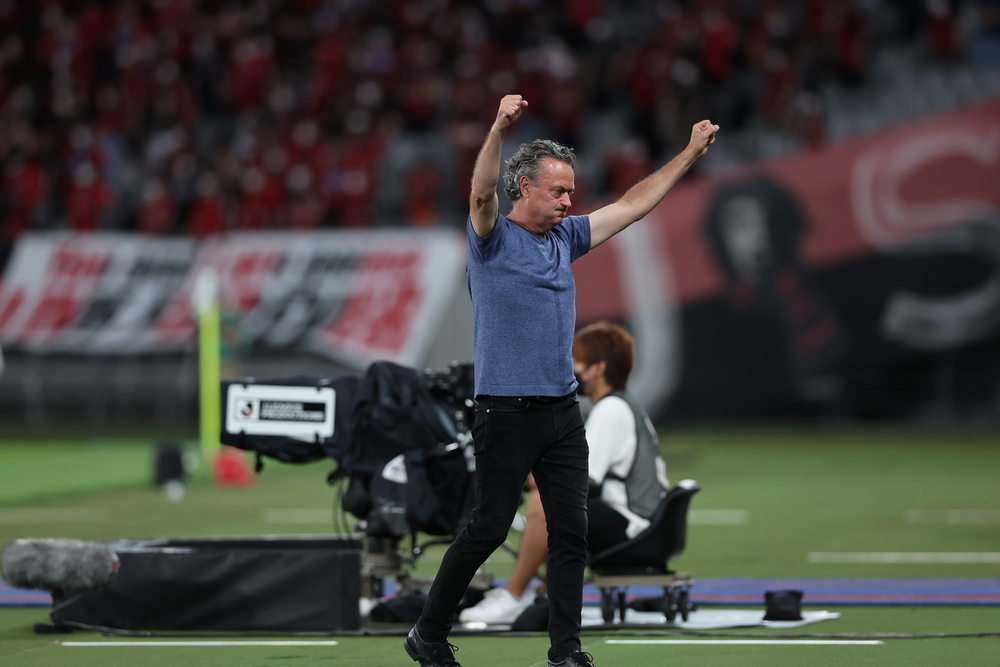
Q, was the change in practice time also taken into account the coolness of today?
A, there is a simple reason that it is very close to Urawa. Therefore, I didn't need to hurry and leave early in the morning after training, so I delayed the start time a bit. I set it to 11 o'clock, but if I leave here, I will arrive there by 4 o'clock. The most stressful time when playing or leading a professional team is the long time spent in the hotel. There wasn't much temperature difference between 9 o'clock and 10 o'clock, so I chose to start at 11 o'clock.
Q: Does the content of the practice change depending on the coolness?
If it is hotter in the 11 o'clock hour than the content, it becomes necessary to start practice as early as 9 o'clock or if possible at 8 o'clock, in order to find a time when we can do what we want to do. However, the current heat is bearable, so even at this time, we can achieve the content we expect.
Q, what is the purpose of the 8 vs 8 plus 3 freeman possession in the training content?
A, this training is one of the very core practice menus for our playing style. Teams that aim for this playing style, such as Barcelona, Manchester City, and Liverpool, do this practice menu almost every day, and it contains many elements of tactics. By repeating this, I think we can firmly instill it in the players. It will also lead to improvement in technical level, and I think especially the tactical elements and decision-making will be improved.
Some people misunderstand that it is the same as possession game, but it is definitely not. It is a very difficult practice that incorporates almost all elements of football. We do positional game training almost every day, not just the day before the match, and the form may change.
Q, is the current training content the same as when Albert PUIG ORTONEDA was a member of Barcelona's academy?
A, indeed, not only me but many coaches like Guardiola and Jurgen Klopp are said to attach importance to this training menu. It is not something I created, nor something Barcelona created, but a widely known training menu adopted by many clubs and coaches.
Q, Kajiwara played in the Sapporo.D match last week.
A, I think it's a very simple thing. As Kajiwara demonstrated in the Sapporo match, I think only players who have a strong desire to succeed in this world and stand on the pitch can survive. They cannot survive if they are looking at the ground and not showing the will to fight with their eyes up. They must have that strong mentality, and of course, they must also have talent. Kajiwara already had talent, so I think that strong mentality led to him expressing his talent on the pitch. Even if you have high-quality technique and wonderful talent, I think it is worthless without a strong mentality.
Q: Are there any players playing with ambition in Tokyo?
A, isn't it natural for young players to have the desire to go abroad? Where do the highest level players in the world gather? Regardless of whether it becomes a reality or not, I think it's something that everyone should have, a big dream. For example, I think judo is Japan's national sport. Even Spanish people who practice judo in Spain know about it, but wouldn't Spanish people who want to aim high in judo want to go to Japan and win there? If you are a soccer player, I think everyone has a dream of succeeding in Europe. That's why I think everyone understands that it is difficult to succeed there. Not only the best players in Europe, but also wonderful players from Africa and South America gather in Europe.
Q: What is the importance of the Urawa match and what kind of analysis are you doing for the Urawa match?
First of all, it is a match against Urawa, one of the largest clubs in the current J1 in terms of management scale. I don't think their current position is a usual one. And in terms of management scale, I recognize that they clearly surpass us. Considering such circumstances on their side, I think it is easy to imagine that it will be a difficult match.
There are high-quality players. If we let them play well, it will become a very difficult game. Therefore, we must eliminate their strengths. At the same time, it will be crucial for us to maximize our strengths. We have had good training in the past few days. It will be a very challenging game. That's why I think it will be a very attractive game to play.
[Player Interview]
<Yuki KAJIURA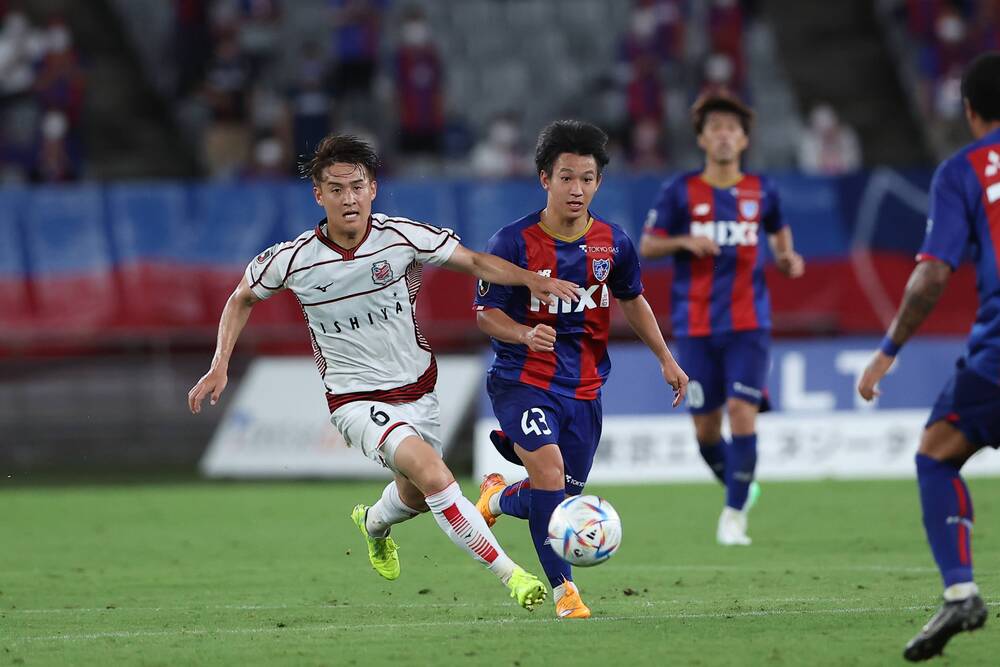
Q, how was the game looking back on it again after some time has passed since the Sapporo match?
A, I watched the game again and felt that I was helped by the players around me. It was good that we won, but when I look at the content, there are still areas where we need improvement. It was a game where what we could do and what we couldn't do became clear.
Q, what were you thinking about before entering the game?
A, I thought that such an opportunity would rarely come, so I have been thinking about expressing what I can do to the fullest from the beginning. I think it was good that I was able to show what I had prepared.
Q, what were the things you were able to do and unable to do during the match?
Although there were parts where we were able to successfully increase the intensity of our defensive press, we were not able to get involved with the ball or participate in the build-up play very much. Tokyo's desired style of soccer is to attack while valuing ball possession, so we want to improve by consciously increasing the number of times we get involved with the ball.
Q, how was it playing amidst the cheers at Ajinomoto Stadium?
During the warm-up before the match, the cheering started and I felt "amazing" as my first impression. It is a happiness to be able to play in this environment, and the feeling of needing to win came out again in my emotions. Even during the match, when I glanced at the fans and supporters, I could see them cheering with all their might, and that made me feel the need to live up to their expectations.
Q: What kind of play do you want to show for the Urawa match?
A, while continuing to maintain a high level of defense, I have only played in one match in the previous round, so I need to continue this and gradually increase what I can do within that.
Q, what kind of analysis are you doing against Urawa?
A, because it is a team that is good at passing the ball, it is important for everyone to press together and not let the opponent have the ball. We also have a playing style that values the ball, so I think that prolonging the time we have the ball and not allowing the opponent to show their characteristics will lead to victory.
Q, what do you want to be conscious of in terms of communication and coordination with other players?
A, during practice, I communicated a lot with the players around me and talked quite a bit about how to press in different situations. Even during the Sapporo game, we were able to communicate and defend together without much trouble, so I definitely want to continue playing while coordinating with the team and not losing sight of the recognition of communicating with each other in the next game.
Q, please share your enthusiasm with the fans and supporters as we prepare for the Urawa match.
A, until the Sapporo game of the previous round, we were in a state where we couldn't win, but we were finally able to achieve victory, and we want to continue winning in the next Urawa game as well.
